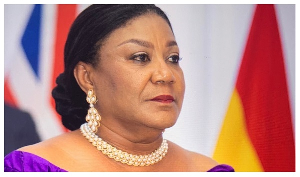The Ghana National Chamber of Commerce & Industry, has urged the central bank to collaborate with commercial banks to ensure that the policy rate cut translates into a reduction in lending rates.
This, the chamber believes, will minimize the cost credit to business considering the tenuous relationship between Policy rates and lending rates.
A press statement released by the commerce authority raised concerns about the need for the Bank of Ghana to ensure that the drop in monetary policy rate is reflected in lending charges.
“The GNCCI urges government and the Bank of Ghana to continue to work with stakeholders to ensure that the announced measures achieved their intended purpose. More work needs to be done in some specific areas.
“Including, the Bank of Ghana must work with the Commercial Banks to ensure that the reduction in policy rate actually translates into reduction in the lending rates,” the statement read.
As the representative organ of the business community in Ghana, the GNCCI also said “now is the time to encourage domestic production given the global disruption of international trade resulting from COVID-19.We must continuously find innovative ways of supporting our domestic firms”.
Monetary Policy Rate in Ghana
The Monetary Policy Committee of the Bank of Ghana (BoG) has lowered the policy rate by 150 basis points from 16 percent to 14.5 percent.
This is the first time since 2019 that the central bank has lowered the policy rate. Before this reduction, The Bank of Ghana has since January last year kept the policy rate unchanged six times.
According to the BoG the Coronavirus pandemic has “significantly heightened uncertainty in global financial markets, causing a sharp downturn of global stock prices and a steep rise in emerging markets’ sovereign bond spreads. These unfolding developments have further worsened the pre-existing weaknesses in global growth and caused major disruptions to global supply chains with adverse implications for the global economy.”
Below is full press release by Ghana National Chamber of Commerce & Industry
Click to view details



Business News of Friday, 3 April 2020
Source: www.ghanaweb.com

















